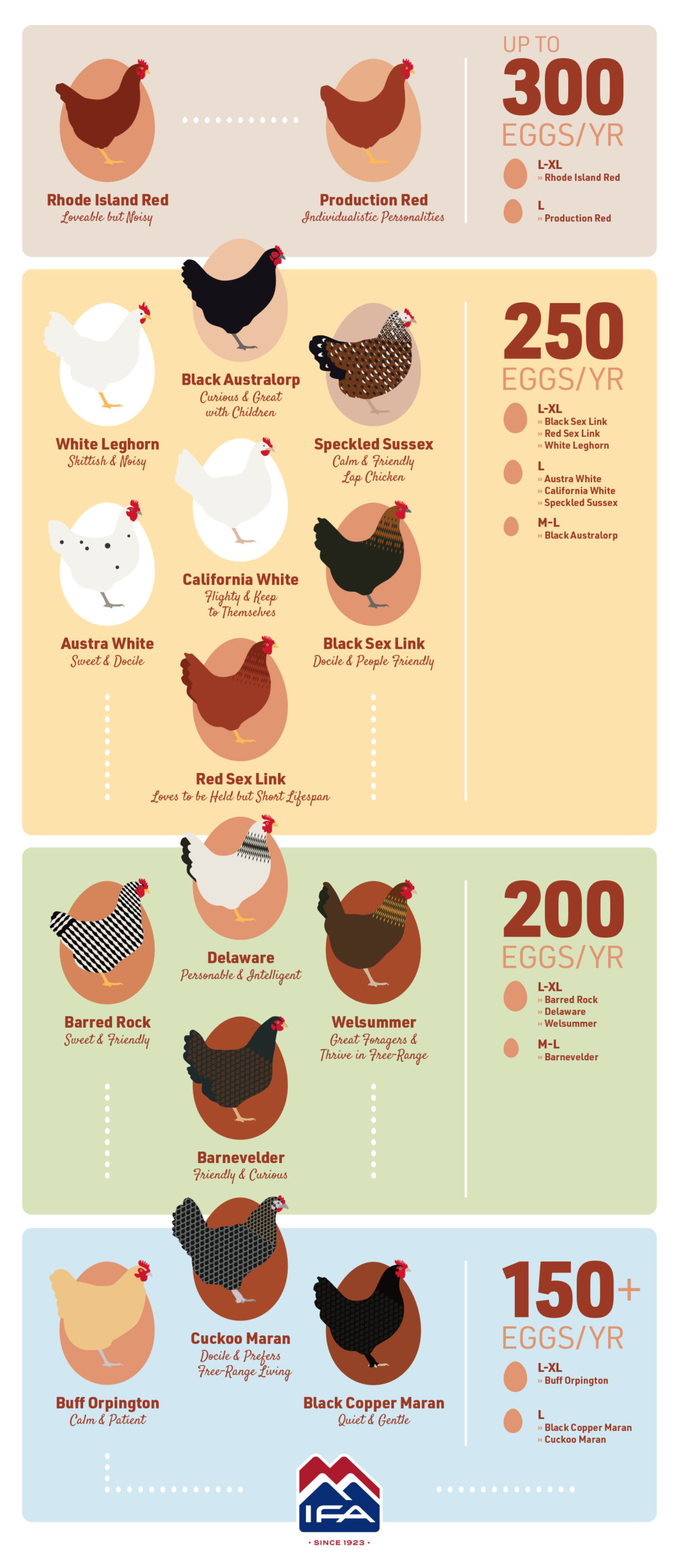If you’re curious about how many eggs a chicken can lay, you’ve come to the right place. In this article, we will discuss the basics of chicken husbandry and answer the question “How many eggs does a chicken lay?” We will also look at factors that affect the number of eggs a chicken can produce and the best practices for keeping chickens healthy and productive. So, let’s get started and learn all about chicken husbandry!
How Many Eggs Can a Chicken Lay in a Year?
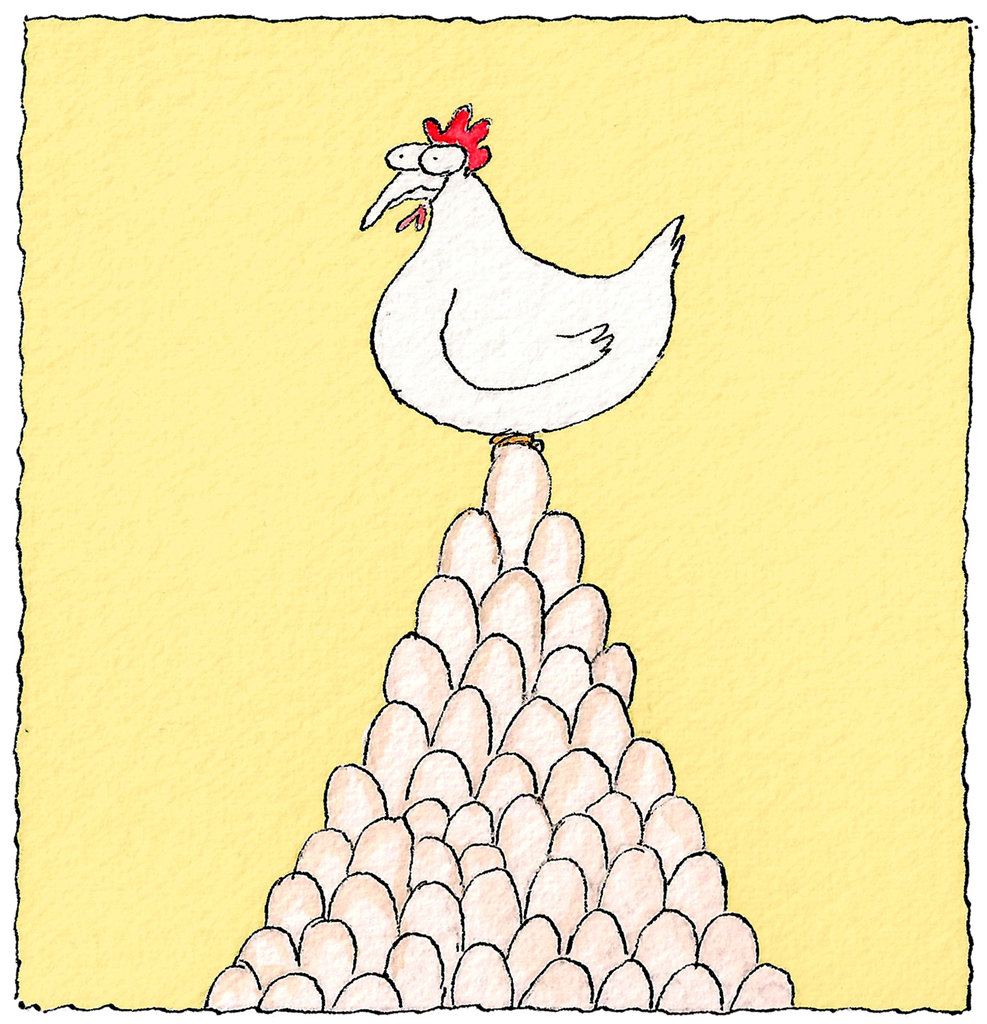
The amount of eggs a chicken can lay in a year varies widely depending on the breed, the individual chicken, and the care it is given. Generally, a healthy hen can lay up to 300 eggs in a year, but some may lay as few as 20 or as many as 350.
| Breed | Amount of Eggs per Year |
|---|---|
| Rhode Island Red | 200-300 |
| Plymouth Rock | 200-280 |
| Leghorn | 280-320 |
| Australorp | 200-280 |
Factors such as age, health, nutrition, and stress can affect how many eggs a chicken can lay in a year. A young chicken may lay fewer eggs than an older one, and a healthy chicken will lay more eggs than one that is not well-cared for. A chicken’s diet is also important; chickens need a balanced diet of essential nutrients to lay healthy eggs. Finally, stress can cause a chicken to stop laying eggs, so providing a low-stress environment is important for a productive flock.
If you are looking for a high-producing breed, Leghorns are known for laying more eggs than other breeds, with some laying up to 350 eggs in a year. Other breeds, such as Rhode Island Reds, Plymouth Rocks, and Australorps, are also good egg-layers, but may not lay as many eggs as a Leghorn.
By providing a healthy environment and proper nutrition, you can ensure that your chickens are productive layers and get the most out of your flock.
Keywords: how many eggs does a chicken lay in a year
How Many Eggs Does a Hen Lay in a Year?

On average, a hen will lay approximately 250 eggs per year. However, this can vary greatly depending on the breed of chicken and the age of the hen.
- A younger chicken, or pullet, usually starts to lay eggs around 18 to 20 weeks of age.
- Breeds such as Leghorn, Rhode Island Reds, and Orpingtons usually lay more eggs than other breeds.
- Hens become more productive for the first two years of their laying life.
- Hens lay fewer eggs as they get older and after a molt.
- A hen can lay between 4 to 7 eggs per week.
- A hen’s egg production may decrease in the winter due to the shorter days.
Having a steady supply of eggs is one of the benefits of chicken husbandry. Knowing how many eggs a chicken lays a year can help you plan accordingly, whether you are raising chickens for eggs or meat. With the right breed and care, a hen can lay 250 eggs in a year, providing a steady supply of eggs for your family.
How Much Eggs Do Chickens Lay?
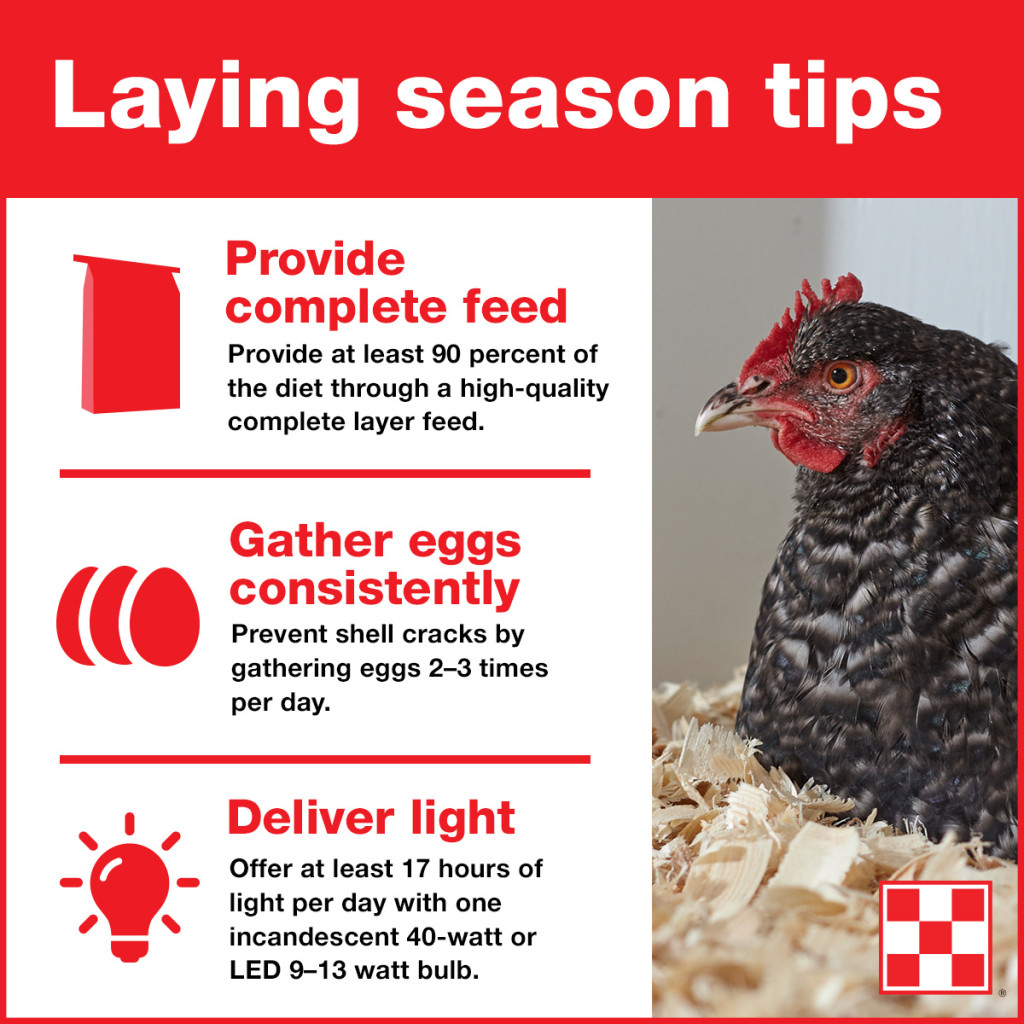
On average, a chicken will lay around 3-5 eggs per week. However, this number can vary greatly depending on the breed, age, health, and environmental conditions of the chicken.
The amount of eggs a chicken lays depends on several factors, such as the breed and age of the bird. Younger hens usually lay more eggs than older chickens, and some breeds have been bred to lay more eggs than others. The health and environmental conditions of the chickens can also play a role in egg production. For example, chickens that are kept in a clean and stress-free environment with access to quality feed and plenty of water tend to lay more eggs than those that aren’t.
| Chicken Breed | Average Eggs Per Week |
|---|---|
| Leghorn | 4-6 |
| Rhode Island Red | 4-5 |
| Araucana | 3-4 |
| Sussex | 3-5 |
| Orpington | 2-4 |
In general, Leghorn chickens are known for laying the most eggs, with some hens laying up to six eggs per week. Rhode Island Reds are also prolific egg layers, averaging around four to five eggs per week. Araucanas, Sussex chickens, and Orpingtons lay fewer eggs, with averages ranging from three to four eggs per week for Araucanas and Sussex chickens, and two to four eggs per week for Orpingtons.
It’s important to remember that these numbers are only averages, and some chickens may lay more or fewer eggs than the listed averages. Additionally, egg production typically slows down during the winter months, as shorter days limit the amount of daylight available for laying eggs.
Finally, egg production can also be affected by the amount of nutrition the hen has access to. In order for a chicken to produce eggs, it needs to be provided with a diet rich in protein and calcium, as well as other essential vitamins and minerals. Without proper nutrition, a hen’s egg production can be drastically reduced.
In conclusion, the amount of eggs a chicken lays can vary greatly depending on the breed, age, health, and environmental conditions of the bird. But on average, chickens can lay between three and five eggs per week.
How Many Eggs Does a Chicken Lay a Day?
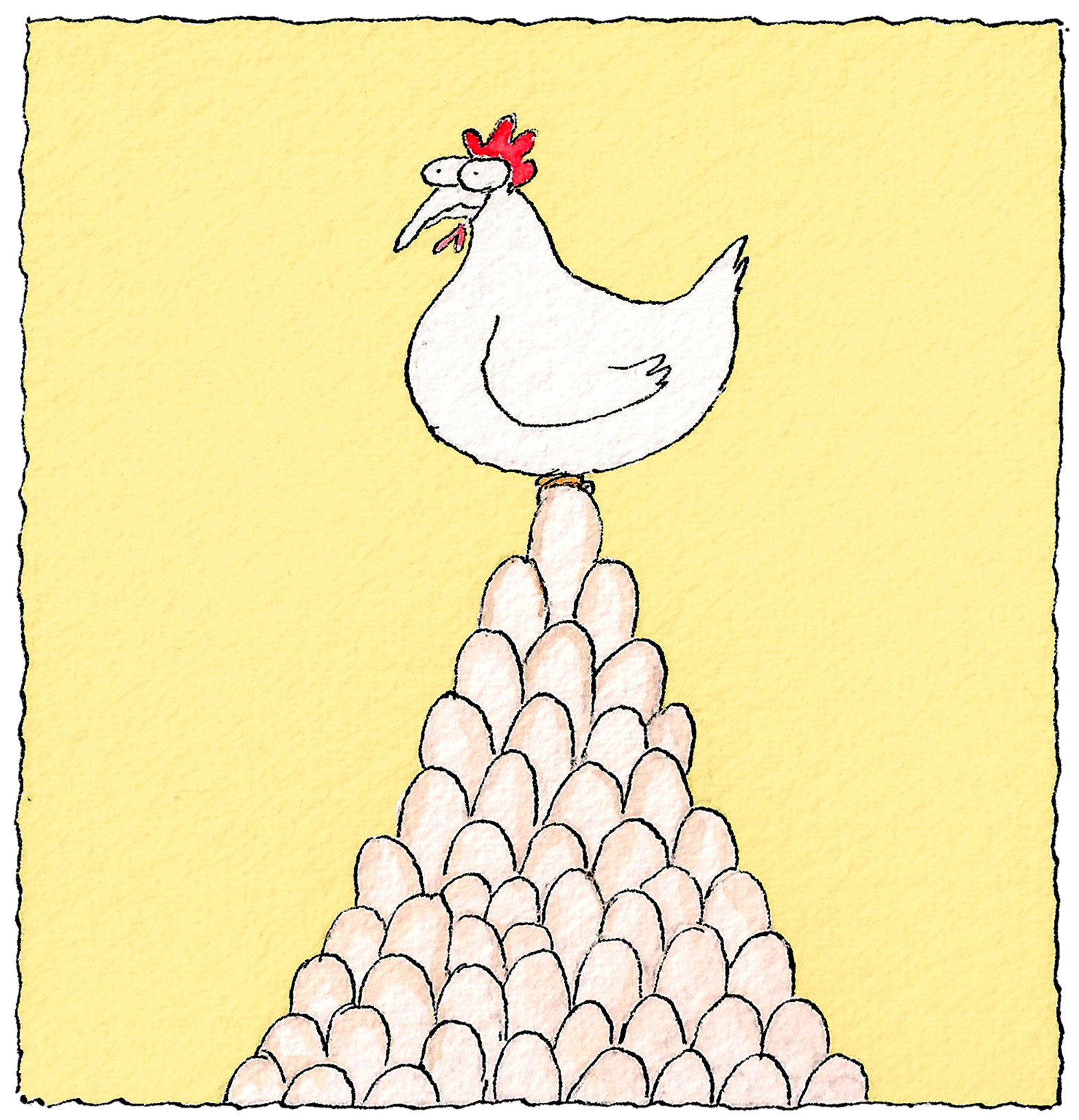
The number of eggs a chicken lays per day depends on several factors. The breed, age, and health of the chicken all play a role in egg production. Healthy chickens of laying breeds can lay up to five eggs per week, with some breeds capable of laying up to seven eggs per week. On average, a chicken will lay one egg per day.
The following table shows the average number of eggs a chicken can lay each day:
| Breed | Eggs/day |
|---|---|
| Leghorn | 3-4 |
| Rhode Island Red | 3-4 |
| Plymouth Rock | 2-3 |
| Araucana | 2-3 |
| Ancona | 1-2 |
The number of eggs a chicken can lay in a year can vary greatly depending on the breed and age of the chicken. Generally, a healthy chicken of a good egg-laying breed can lay up to 250 eggs in a year.
How Many Eggs Do Chickens Lay in a Week?
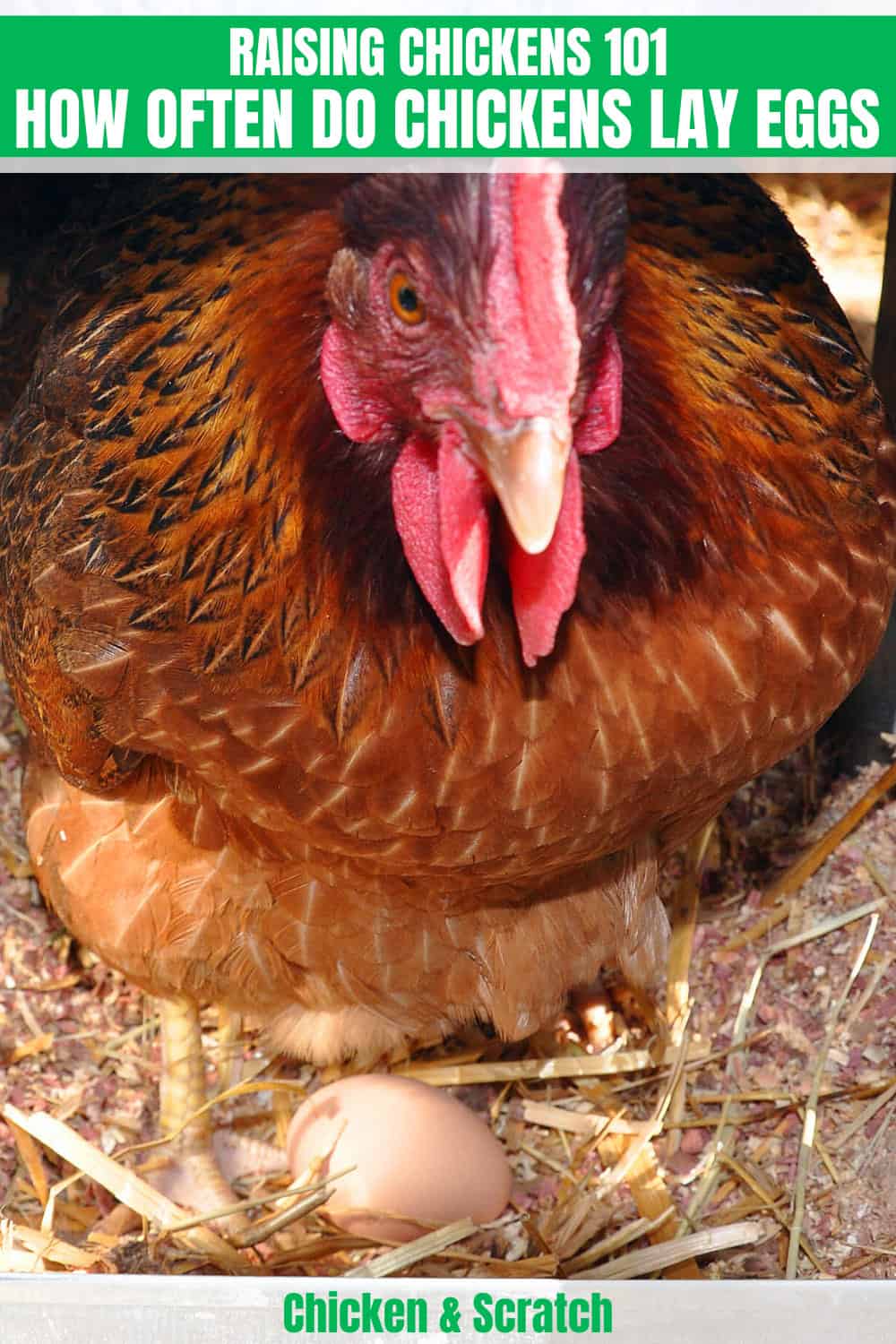
On average, a healthy chicken will lay between 4 to 7 eggs a week. This number can fluctuate depending on the age and breed of the chicken.
Below are some factors that will influence the amount of eggs a chicken lays in a week:
- Age: Younger chickens will lay fewer eggs than older chickens.
- Breed: Different breeds lay different amounts of eggs.
- Season: During the winter months, chickens tend to lay fewer eggs due to the shorter days.
- Light: Chickens need 14 to 16 hours of light to lay eggs. If they don’t get enough light, they may stop laying eggs.
- Nutrition: Chickens need a balanced diet to lay eggs. If they don’t get enough protein, calcium, and other nutrients, they may stop laying eggs.
To ensure a healthy flock of chickens, it’s important to provide them with a balanced diet and adequate lighting. This will help to ensure that they are laying eggs regularly and that the eggs are healthy.
Factors That Affect the Number of Eggs a Chicken Lays

Chickens are known for their egg-laying capabilities and the number of eggs a chicken can lay depends on several factors. These factors include the age of the chicken, the breed of chicken, the nutrition, and the season.
Age
The age of the chicken is a crucial factor in determining how many eggs it will lay. Generally, hens that are 18-20 weeks old are the most productive in terms of egg-laying. The rate of egg production decreases as the hen grows older and typically stops when the hen is around 4-5 years old.
Breed
The breed of chicken is also important when it comes to how many eggs it will lay. Certain breeds are more prolific egg layers than others, such as the Rhode Island Red, White Leghorn, and Plymouth Rock. On average, these breeds can lay around 200-300 eggs per year.
Nutrition
The nutrition of the chicken affects the number of eggs it lays every year. Chickens need to receive a balanced diet of carbohydrates, proteins, vitamins, and minerals in order to lay eggs. If the hen is not receiving a sufficient amount of nutrition, it will not be able to lay eggs.
Season
The season also has an effect on the number of eggs a chicken lays. Chickens typically lay fewer eggs in the winter months due to the shorter days and lower temperatures. In the summer, when the days are longer and the temperatures are warmer, chickens tend to lay more eggs.
In conclusion, the number of eggs a chicken lays depends on several factors such as age, breed, nutrition, and season. By understanding these factors, you can better manage your chicken husbandry and ensure that your chickens are receiving the best care and nutrition in order to produce the maximum number of eggs.
Common Egg-Laying Breeds
Whether you are new to keeping chickens or a seasoned poultry keeper, understanding the egg-laying capabilities of your birds is an important part of chicken husbandry.
- Leghorns are a popular breed that lay white eggs and are known for their excellent egg-laying abilities. They are a medium-sized breed and typically lay 250-280 eggs per year.
- Americaunas are a breed of chicken that lay blue or green eggs. They are a medium-sized breed and typically lay 150-200 eggs per year.
- Rhode Island Reds are a popular breed that lay brown eggs and are known for their hardiness in colder climates. They are a large breed and typically lay 250-280 eggs per year.
- Orpingtons are a breed of chicken that lay brown eggs. They are a large breed and typically lay 200-220 eggs per year.
- Barred Rocks are a popular breed that lay brown eggs and are known for their docile personalities. They are a large breed and typically lay 200-220 eggs per year.
No matter which breed of chicken you keep, understanding the egg-laying capabilities of your birds is key to successful chicken husbandry. On average, hens lay between 150-280 eggs per year depending on the breed.
Guidelines for Care and Husbandry
Feeding: Provide a balanced, nutrient-rich diet that meets the chickens’ needs. Include a variety of grains, such as wheat, corn, and oats, as well as high-protein foods, such as mealworms, legumes, and kitchen scraps.
Housing: Provide a safe and secure coop with plenty of ventilation, adequate space to move around, perches, and nesting boxes.
Cleanliness: Clean the coop and nesting boxes regularly to prevent the spread of disease.
Health Care: Monitor the chickens for signs of disease or injury and provide necessary medical care.
Predator Prevention: Keep predators such as foxes, hawks, and coyotes away from the coop by using fencing and other deterrents.
Egg Collection: Collect eggs regularly to prevent them from being damaged or eaten by predators.
Breeding: Monitor the chickens for signs of fertility and understand the basics of breeding chickens.
Frequently Asked Questions
How Often Does a Chicken Lay Eggs?
- Light Breeds: Light breeds of chickens typically lay eggs on a nearly daily basis, with some breeds laying as many as 300 eggs per year.
- Heavy Breeds: Heavy breeds of chickens lay fewer eggs than the light breeds, typically around 200 per year.
- Seasonality: Egg production will typically slow down or stop altogether during the shorter days of the winter, and increase during the longer days of the summer.
- Age: Egg-laying capacity typically decreases as chickens age, with hens slowing down and possibly stopping production after four or five years.
What Environmental Conditions Are Necessary for a Chicken to Lay Eggs?
Chickens need a comfortable, secure environment with plenty of food and water to lay eggs. They also need a minimum of 16 hours of light each day, such as natural sunlight or artificial lighting, to stimulate the reproductive hormones that trigger egg-laying. In addition, the temperature and humidity of the environment should be ideal for the chicken’s comfort and health. Chickens need a safe, protected area to lay eggs, and they should be provided with a nest box or other suitable nesting area. Finally, chickens need access to an adequate amount of calcium, which is necessary to produce strong eggshells.
How can I tell if a chicken is ready to lay eggs?
1. Age: Generally, laying starts when chickens reach 4 to 5 months of age.
2. Sight: Look for an egg-shaped bulge in the chicken’s lower abdomen.
3. Behavior: A chicken may start to act differently when it’s ready to lay. It may become more vocal and begin to roost or nest.
4. Nesting Material: A chicken will start to collect nesting material such as straw or hay when it is ready to lay.
5. Egg Production: Once a chicken starts to lay eggs, it will continue to do so for several years. The rate of egg production will vary from breed to breed.
Is there any way to increase the number of eggs that a chicken will lay?
Nutrition: Ensuring your chickens have a balanced diet is key to increasing egg production. Provide a variety of high-protein foods such as fish meal, corn, and sunflower seeds. Supplementing with calcium and other minerals is also important for egg production.
Light: Chickens need 16-18 hours of light per day to produce optimal amounts of eggs. Providing a light source for your chickens is a great way to increase egg production.
Stress: Keeping chickens in a low-stress environment is essential for maintaining egg production. Make sure your coop is well-ventilated, and you clean it regularly. Ensure your chickens have access to plenty of food and water, and keep them away from predators.
Breed: Certain breeds of chickens are naturally more productive than others. Consider investing in a breed that is known for its high egg-laying capabilities.
Age: Young chickens tend to lay more eggs than older chickens. When purchasing chickens, make sure they are young enough to be productive.
Environment: Make sure your chickens have plenty of space to roam and plenty of fresh air. This will help them stay healthy and productive.
Are there any health concerns associated with keeping chickens for egg production?
Yes, there are some health concerns associated with keeping chickens for egg production.
- Diseases: Chickens can be susceptible to various diseases, such as avian influenza, Newcastle disease, avian pox, and coccidiosis.
- Parasites: Chickens can be infested with various parasites, such as lice, mites, and fleas.
- Zoonotic Diseases: Zoonotic diseases, such as salmonellosis, can be transmitted from chickens to humans.
- Injuries: Chickens can be injured by predators or other animals, leading to infection.
- Nutritional Deficiencies: If a chicken’s diet is inadequate, it can lead to nutritional deficiencies.
- Overcrowding: Overcrowding of chickens can cause stress and spread of diseases.
Therefore, it is important to take steps to ensure that chickens are kept in a healthy and safe environment. This includes regular cleaning, proper nutrition, and veterinary check-ups.
Conclusion
Chicken husbandry involves providing a healthy environment for chickens and understanding their egg-laying habits. Generally, a chicken will lay between four to six eggs per week, although this may vary depending on the breed and age of the chicken. A healthy diet and regular egg collection are key to maximizing the number of eggs laid by a chicken.
